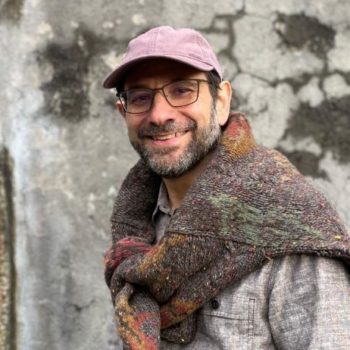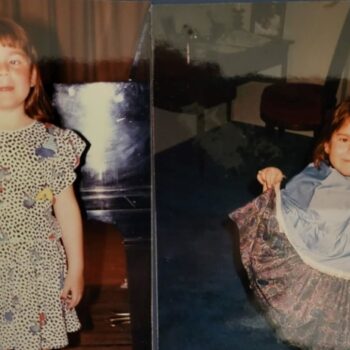Judaism teaches that gratitude must lead to action. When we say Hamotzi, we don’t just acknowledge the bread before us; we recognize that food is not guaranteed, and that we have a role in ensuring that others are nourished too. Just as the Mincha offering was shared in the Mishkan, we are called to share our sustenance with those in need.
In Pirkei Avot, a book of maxims in the Mishnah, an ancient rabbi, Ben Bag-Bag said about Torah study, “Hafokh bah, va’Hafokh vah, d’khola bah.” Turn it over and over, for everything is in it. For two thousand years, that’s what Jews have done. Here is another turning.
Click to view the April-June 2025 issue of Neveh Shalom’s Chronicle Please note that the file is large, thank you for your patience.
The joy of reopening the doors, of placing a Torah back in the aron kodesh, is akin to the moment when the Shechinah filled the Mishkan in Pekudei. The blessing of matziv gvul almana reminds us that while destruction can be devastating, restoration is always possible.
The very name of this parsha, Vayakhel, means “he gathered.” Before any work could begin, Moses brought the people together. This reminds us that no holy endeavor is accomplished in isolation. The Israelites, who had once been a nation of enslaved individuals, became a unified people working toward a shared mission.
Parshat Ki Tissa introduces us to the ketoret, the sacred incense offering, which played a central role in the Mishkan. This fragrant blend of certain spices was burned daily, filling the space with a holy and unique aroma. More than just a pleasing scent, the ketoret symbolized connection, transformation, and spiritual elevation.
Parshat Tetzaveh teaches us that what we wear matters—not because of status or fashion, but because clothing has the power to sanctify. The Kohen Gadol’s garments set him apart for holy service; our clothing, too, can remind us that we are all created b’tzelem Elohim, in the image of God, and that every act—even getting dressed in the morning—can be one of sanctity and gratitude.










